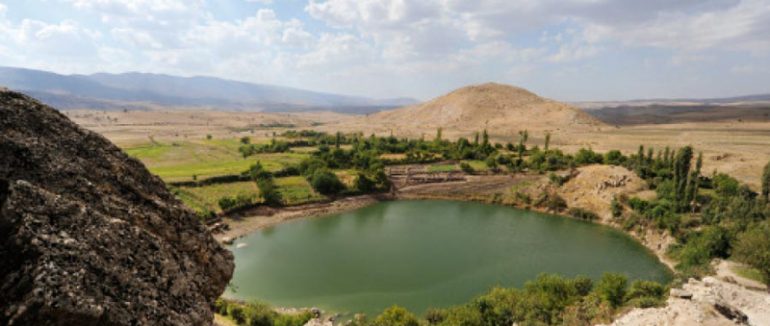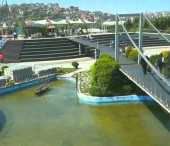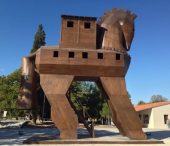Siirt is a city in southeastern Turkey and the seat of Siirt Province. The population of the city according to the 2000 census was 98,281.
The city's landmark is the Great Mosque (Ulu Cami) built in 1129 by the Great Seljuk Sultan Mahmut II who belonged to the main branch of the dynasty that ruled from Baghdad after this Turkish Empire had split into several branches. The mosque has been restored in 1965.
Siirt is famous around Turkey for its hand-made blankets (Siirt battaniyesi). Many visitors find themselves departing with one offered as a present. The traditional kilims produced by the Jirikan clan (aşiret) and revived since 1996 through joint efforts involving official instances and citizens are also much prized. Another product of interest is the Bıttım soaps proper to the region. Siirt also has an extremely rich culinary and spa culture. Depending district centers of Aydınlar (former Assyrian-rooted name was Tillo) with its historical medrese is renowned as a religious center and Pervari for its honey based on the particularly rich flora.
Siirt is Turkish Prime Minister Recep Tayyip Erdoğan's constituency. His wife, Mrs. Emine Erdoğan, is from Siirt and the PM has been elected to the Turkish Grand National Assembly in a by-election held in Siirt in 2003.
Christian history
In pre-Islamic times, Siirt was an episcopacy of the Byzantine Church. An illuminated manuscript known as the Syriac Bible of Paris may have originated from the Bishop of Siirt's library, Siirt's Christians would have worshipped in Syriac, a liturgical language related to Arabic still in use by the Chaldean Rite, other Eastern Christians in India, and the Nestorians along the Silk Road as far as China.










